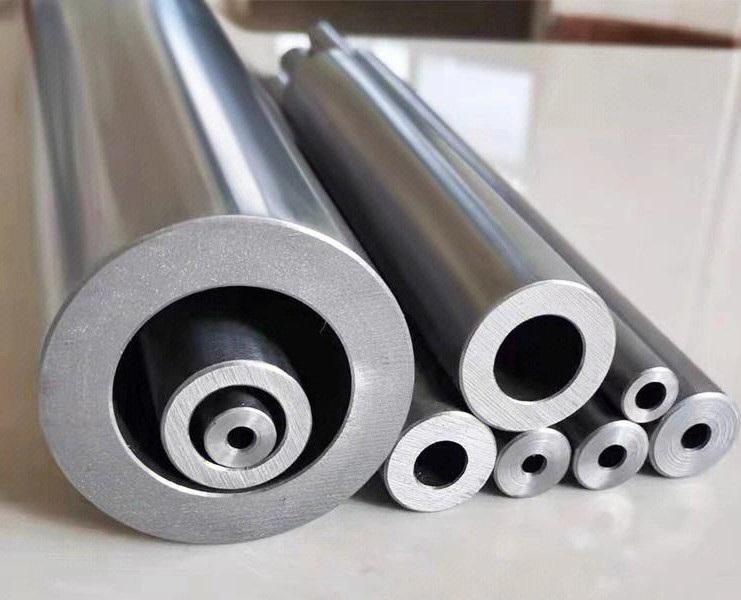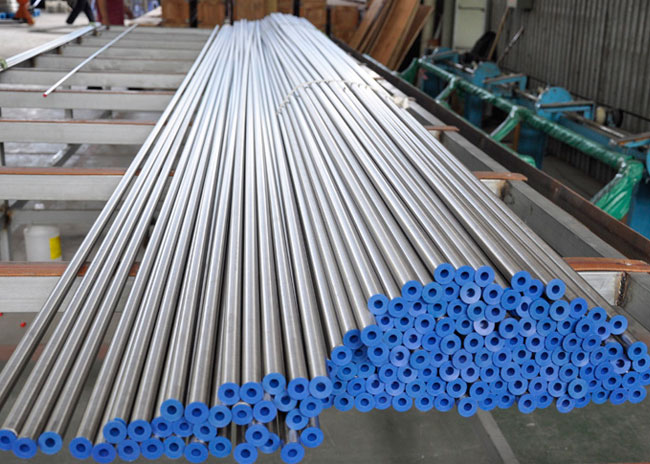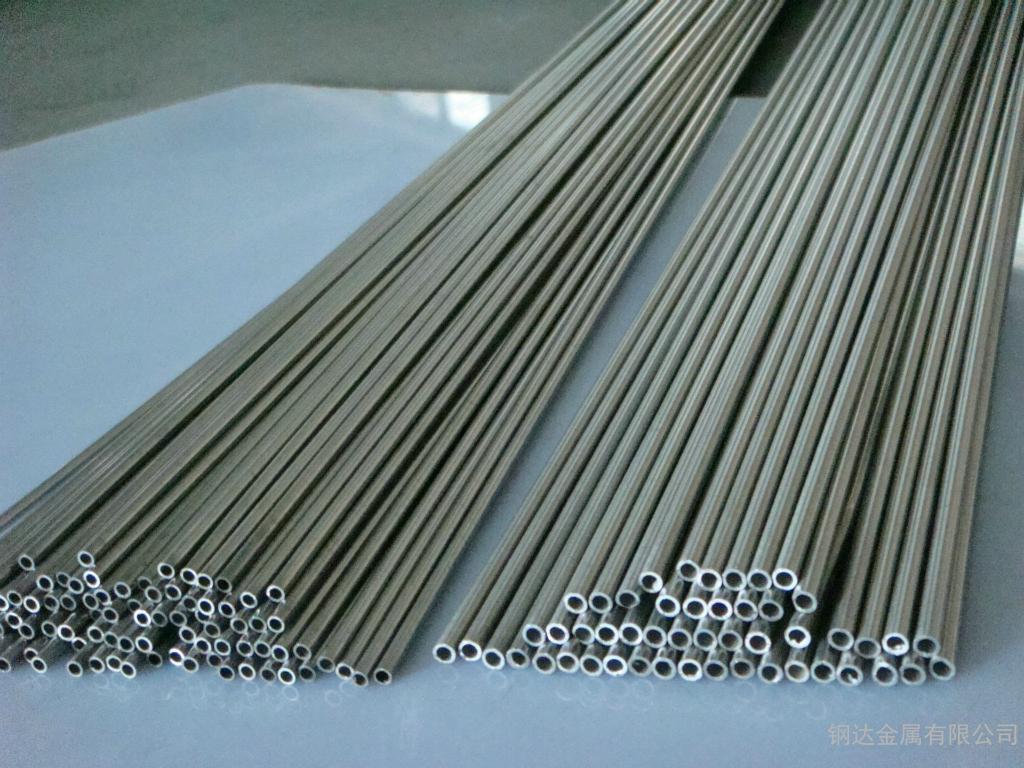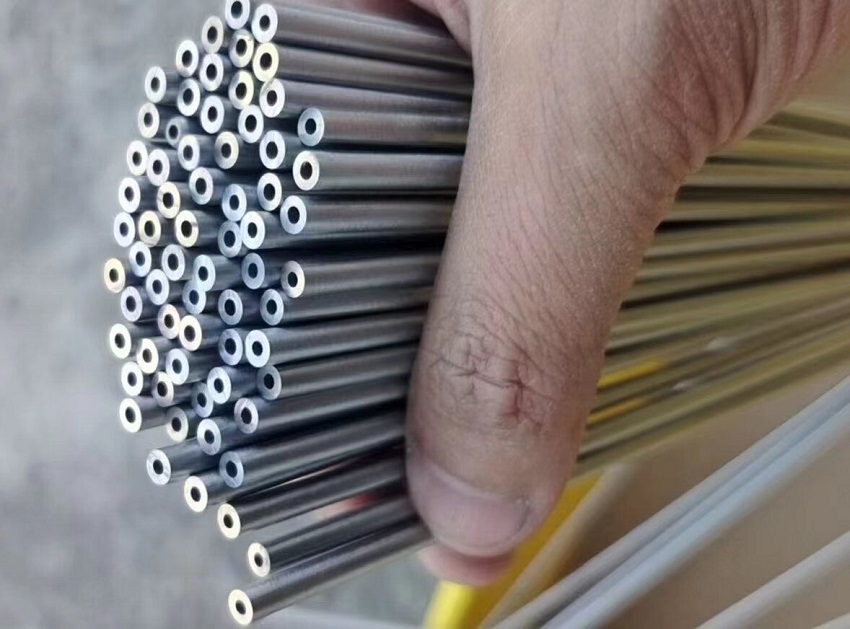Nickel Alloy Tube vs Stainless Steel Tube
Nickel alloy tubes and stainless steel tubes are both commonly used in industrial applications, but they differ significantly in terms of material properties, performance and application.
1. Nickel Alloy Tube vs Stainless Steel Tube Composition and Materials:
►Nickel Alloy Tube:
Base Metal: Primarily consists of nickel with varying amounts of other metals like chromium, iron, copper, and molybdenum.
Alloying Elements: Often contains high amounts of nickel (e.g., 80-90%), making it highly resistant to heat, corrosion, and oxidation.
Types: Common nickel alloys include Inconel (nickel-chromium), Monel (nickel-copper), and Hastelloy (nickel-molybdenum).
►Stainless Steel Tube:
Base Metal: Primarily made of iron, with chromium content of at least 10.5%.
Alloying Elements: Often includes carbon, nickel (in lower amounts compared to nickel alloys), molybdenum, and others, depending on the grade (e.g., 304, 316).
Types: The most common grades are 304, 316, and 2205 (duplex stainless steel), where 316 is widely used in corrosion-resistant applications.
2. Nickel Alloy Tube vs Stainless Steel Tube Corrosion Resistance:
►Nickel Alloy Tube:
Offers superior resistance to corrosion, especially in extreme environments (high temperatures, acidic or chloridic conditions).
Excellent for applications exposed to acids, chlorine, and seawater.
Highly resistant to oxidation and scaling at high temperatures.
►Stainless Steel Tube:
Generally resistant to rust, corrosion, and oxidation but not as resistant as nickel alloys in very harsh environments (e.g., highly acidic or chloridic conditions).
Types like 316 stainless steel offer excellent corrosion resistance in saline or marine environments.
3. Nickel Alloy Tube vs Stainless Steel Tube Heat Resistance:
►Nickel Alloy Tube:
Better High-Temperature Performance: Nickel alloys are known for their excellent performance at high temperatures, retaining strength and resistance to oxidation at temperatures up to 1,100°C (2,012°F) or higher.
Ideal for applications like gas turbines, heat exchangers, and chemical reactors that require materials capable of withstanding extreme heat.
►Stainless Steel Tube:
While stainless steel also offers good high-temperature resistance, its strength diminishes significantly above 800-900°C (1,472-1,652°F).
Less effective in ultra-high-temperature environments compared to nickel alloys.
4. Nickel Alloy Tube vs Stainless Steel Tube Mechanical Strength:
►Nickel Alloy Tube:
Superior Mechanical Strength: Nickel alloys tend to have better overall mechanical strength, especially at high temperatures.
They can withstand greater stress and are more durable in extreme conditions (e.g., in aerospace, power plants).
►Stainless Steel Tube:
While stainless steel is strong and durable, it doesn’t offer the same level of strength at elevated temperatures or in environments with highly corrosive agents.
However, grades like 316 or duplex stainless steels offer good strength in many industrial settings.
5. Nickel Alloy Tube vs Stainless Steel Tube Thermal Conductivity:
►Nickel Alloy Tube:
Generally, nickel alloys have lower thermal conductivity than stainless steel, making them less efficient in transferring heat.
►Stainless Steel Tube:
Stainless steel typically has higher thermal conductivity than nickel alloys, which may make it more efficient for heat transfer in certain applications.
6. Nickel Alloy Tube vs Stainless Steel Tube Applications:
►Nickel Alloy Tube:
High-Temperature Environments: Gas turbines, reactors, aerospace, and power generation.
Corrosive Environments: Chemical processing, seawater systems, and acidic environments.
Heat Exchangers & Boilers: Especially in cases requiring extreme resistance to corrosion and high temperatures.
►Stainless Steel Tube:
General Industrial Applications: Food processing, pharmaceuticals, water systems, HVAC, automotive, and construction.
Marine and Marine-Inspired Applications: Saltwater environments where 316 stainless steel is commonly used.
Heat Exchangers & Cooling Systems: Especially in situations where moderate temperature resistance is needed.
7. Nickel Alloy Tube vs Stainless Steel Tube Cost:
►Nickel Alloy Tube:
Expensive: Nickel alloys are more costly due to the higher price of raw materials and more complex production processes.
►Stainless Steel Tube:
More Affordable: Stainless steel tubes are generally less expensive, making them a cost-effective choice for most applications.
8. Nickel Alloy Tube vs Stainless Steel Tube Formability and Weldability:
►Nickel Alloy Tube:
Nickel alloys tend to be more difficult to work with (cut, weld, form) due to their hardness and density. Special care is required when welding or forming.
►Stainless Steel Tube:
Easier to weld and form compared to nickel alloys. Stainless steel can be more easily processed and welded using conventional techniques.
|
Property |
Nickel Alloy Tube |
Stainless Steel Tube |
|
Corrosion Resistance |
Excellent, especially in extreme environments |
Good, but not as resistant as nickel alloys |
|
Heat Resistance |
Superior, withstands higher temperatures |
Good, but less effective at higher temps |
|
Mechanical Strength |
Higher strength at elevated temps |
Strong but less in extreme conditions |
|
Thermal Conductivity |
Lower than stainless steel |
Higher than nickel alloys |
|
Applications |
Extreme temperature & corrosive environments |
General industrial, marine, food, etc. |
|
Cost |
Expensive |
More affordable |
|
Weldability/Formability |
More difficult to work with |
Easier to weld and form |
Nickel alloy tubes are best suited for applications requiring exceptional high-temperature performance, corrosion resistance, and durability in challenging environments. On the other hand, stainless steel tubes are more affordable and sufficient for a wide range of general industrial applications, offering good corrosion resistance and strength at moderate temperatures.

Nickel Alloy Tube
请输入搜索关键字
确定






